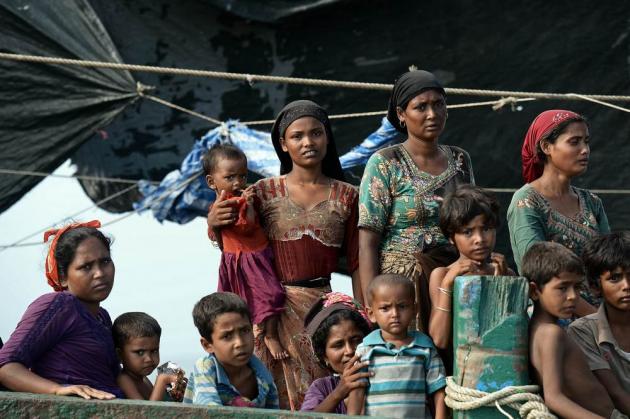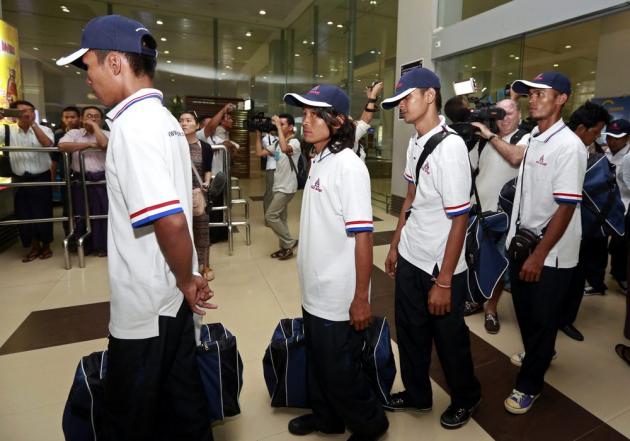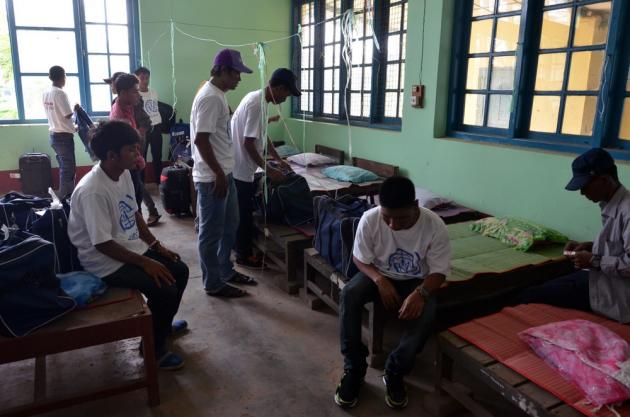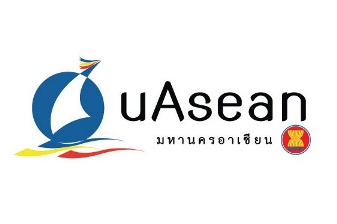A tale of two peoples
Myanmar Eleven May 18, 2015 1:00 am
#block_media{
position:relative;
display:block;
clear:both;
}
#tab_photo,#tab_video{
display:inline-block;
width:60px;
height:auto;
padding:3px;
position:absolute;
top:-25px;
left:500px;
text-align:center;
background-color:#ccc;
color:#000;
cursor:pointer;
z-index:0;
}
@-moz-document url-prefix() {
#tab_photo,#tab_video{
top:-26px;
}
}
#tab_video{
left:564px;
}
#block_media .tab_media_active{
background-color:#0c3e6f;
color:#fff;
}
#slides_box,.box-vdo-top{
z-index:600;
}




 During her four-day visit, the French Ambassador at Large for Human Rights, Patrizianna Sparacino-Thiellay, will spend two days in Sittwe, the capital city of Rakhine State - the home of hundreds of thousand Rohingya.
Announcing the four-day visit, from May 19-22, the French Embassy, did not link it to the plight of the Rohingya. However, the visit came at the time when Myanmar is in spotlight, as hundreds of the Rohingya were rescued off the coasts of Indonesia, Malaysia and Thailand and many more are cast adrift in the sea, as their smugglers avoid crackdown.
During her four-day visit, the French Ambassador at Large for Human Rights, Patrizianna Sparacino-Thiellay, will spend two days in Sittwe, the capital city of Rakhine State - the home of hundreds of thousand Rohingya.
Announcing the four-day visit, from May 19-22, the French Embassy, did not link it to the plight of the Rohingya. However, the visit came at the time when Myanmar is in spotlight, as hundreds of the Rohingya were rescued off the coasts of Indonesia, Malaysia and Thailand and many more are cast adrift in the sea, as their smugglers avoid crackdown.
In Sittwe, the ambassador is meeting with internal displaced people, communities' representatives and holding discussions with the representatives of international non-government organisations (INGOs), the United Nations and civil service organisations involved on the ground. A meeting with the Chief Minister of Rakhine State, Maung Maung Ohn, will be also planned, the embassy said.
Last week, Malaysia Deputy Home Minister Wan Junaidi Tuanku Jaafar stressed that Southeast Asia must send a "very strong message" to Myanmar to stop oppressing its Rohingya minority, who are part of a surge in boat people raising fears of a regional humanitarian crisis.
Thailand has called a May 29 regional meeting on the issue. Yet, according to AFP, Myanmar may not join the meeting.
"We are unlikely to attend... we do not accept it if they (Thailand) are inviting us just to ease the pressure they are facing," Myanmar presidential office director Zaw Htay told AFP.
"The root cause (of the crisis) is increasing human trafficking. The problem of the migrant graves is not a Myanmar problem, it's because of the weakness of human trafficking prevention and the rule of law in Thailand," he added.
The migrants have been on the boats anywhere from several weeks to two months, according to Jeffrey Labovitz, the Chief of Mission for the International Organisation of Migration in Thailand. The boats often undertake a two-stage journey from Myanmar to Malaysia or Indonesia, with Thailand as a stopping point.
A recent crackdown on human trafficking by Thailand has also caused numerous traffickers who ran the boat operation to abandon their cargo and leave them adrift, increasing the continuous length of time at sea.
The Rohingya, mostly living in Rakhine State, are reportedly suffering from harsh living conditions and decide to flee to the third country, mainly Malaysia, for a better life.
Meanwhile, lack of job opportunities at home also drive Myanmar people from other parts to seek jobs overseas. Some also fall into the hands of human traffickers.
Last week, amid silence on the plight of the Rohingya, there was a series of reports on the return of slave workers. Some of them were enslaved on remote eastern Indonesian islands and forced to work in the Thai fishing industry. Myanmar police said that they would be repatriated this month. The slave workers on the island village of Benjina included Thai nationals, but Thailand remained criticised for the slavery in the fishing industry.
Some of them have returned home. The group includes five from Ayeyarwady Region, three from Yangon Region, one from Kayin State and one from Mon State.
Ye Win Aung, a trafficking prevention leader based in Yangon, said: "The group informed us about the trafficked people and the conditions they faced. We took them back since they might have been in danger."
Aung Naing, one of the 13, said: "I used to work at Kyankin cement plant. Then I moved to Kawthaung [Tanintharyi Region] and made contact with an agent and was sent to Indonesia. We were beaten on the boat. We had to work the whole day. We were shot at with firearms if we ran away."
Meanwhile, Myanmar's anti-trafficking police also reported on the trafficking situation in general. It said that a total of 169 people were suspected of being trafficked from January to April this year and most were headed to China. Among them, 26 women were trafficked for forced marriages in China. The police said they have rescued 130 people, including 85 males and 45 females during the period.
The police claim to have arrested 116 criminals involved in human-trafficking cases and said that 41 suspects were still at large.
"The human-trafficking cases mostly took place in Shan State. The victims were mostly trafficked to China. Most of the cases involved forced marriages. People from poor areas are most often the victims. They needed money and were easily abused for that reason. The anti-human trafficking police organise awareness campaigns in these areas. We’re also working to rescue the remaining victims," said an anti-trafficking police officer.
According to the police, in Shan State there were 12 cases, six in Yangon Region, eight in Mandalay Region, three in Ayeyarwady Region, five in Bago Region, two in Magway Region and one each in Mon and Kayah states and Sagaing Region.
54 Viewed
googletag.display('div-gpt-ad-1407393128989-0'); var switchTo5x=false; stLight.options({publisher:'6d3040a3-8e61-4630-98b5-3f5875b38d3e'}); Latest stories in this category



Rohingya migrants stand and sit in a boat cast adrift in the sea./AFP

Myanmar fishing industry workers arrive back to Myanmar from Indonesia on May 14./EPA

Some trafficked Myanmar nationals return and stay at a government shelter before heading to their hometowns./EMG
In Sittwe, the ambassador is meeting with internal displaced people, communities' representatives and holding discussions with the representatives of international non-government organisations (INGOs), the United Nations and civil service organisations involved on the ground. A meeting with the Chief Minister of Rakhine State, Maung Maung Ohn, will be also planned, the embassy said.
Last week, Malaysia Deputy Home Minister Wan Junaidi Tuanku Jaafar stressed that Southeast Asia must send a "very strong message" to Myanmar to stop oppressing its Rohingya minority, who are part of a surge in boat people raising fears of a regional humanitarian crisis.
Thailand has called a May 29 regional meeting on the issue. Yet, according to AFP, Myanmar may not join the meeting.
"We are unlikely to attend... we do not accept it if they (Thailand) are inviting us just to ease the pressure they are facing," Myanmar presidential office director Zaw Htay told AFP.
"The root cause (of the crisis) is increasing human trafficking. The problem of the migrant graves is not a Myanmar problem, it's because of the weakness of human trafficking prevention and the rule of law in Thailand," he added.
The migrants have been on the boats anywhere from several weeks to two months, according to Jeffrey Labovitz, the Chief of Mission for the International Organisation of Migration in Thailand. The boats often undertake a two-stage journey from Myanmar to Malaysia or Indonesia, with Thailand as a stopping point.
A recent crackdown on human trafficking by Thailand has also caused numerous traffickers who ran the boat operation to abandon their cargo and leave them adrift, increasing the continuous length of time at sea.
The Rohingya, mostly living in Rakhine State, are reportedly suffering from harsh living conditions and decide to flee to the third country, mainly Malaysia, for a better life.
Meanwhile, lack of job opportunities at home also drive Myanmar people from other parts to seek jobs overseas. Some also fall into the hands of human traffickers.
Last week, amid silence on the plight of the Rohingya, there was a series of reports on the return of slave workers. Some of them were enslaved on remote eastern Indonesian islands and forced to work in the Thai fishing industry. Myanmar police said that they would be repatriated this month. The slave workers on the island village of Benjina included Thai nationals, but Thailand remained criticised for the slavery in the fishing industry.
Some of them have returned home. The group includes five from Ayeyarwady Region, three from Yangon Region, one from Kayin State and one from Mon State.
Ye Win Aung, a trafficking prevention leader based in Yangon, said: "The group informed us about the trafficked people and the conditions they faced. We took them back since they might have been in danger."
Aung Naing, one of the 13, said: "I used to work at Kyankin cement plant. Then I moved to Kawthaung [Tanintharyi Region] and made contact with an agent and was sent to Indonesia. We were beaten on the boat. We had to work the whole day. We were shot at with firearms if we ran away."
Meanwhile, Myanmar's anti-trafficking police also reported on the trafficking situation in general. It said that a total of 169 people were suspected of being trafficked from January to April this year and most were headed to China. Among them, 26 women were trafficked for forced marriages in China. The police said they have rescued 130 people, including 85 males and 45 females during the period.
The police claim to have arrested 116 criminals involved in human-trafficking cases and said that 41 suspects were still at large.
"The human-trafficking cases mostly took place in Shan State. The victims were mostly trafficked to China. Most of the cases involved forced marriages. People from poor areas are most often the victims. They needed money and were easily abused for that reason. The anti-human trafficking police organise awareness campaigns in these areas. We’re also working to rescue the remaining victims," said an anti-trafficking police officer.
According to the police, in Shan State there were 12 cases, six in Yangon Region, eight in Mandalay Region, three in Ayeyarwady Region, five in Bago Region, two in Magway Region and one each in Mon and Kayah states and Sagaing Region.
54 Viewed
googletag.display('div-gpt-ad-1407393128989-0'); var switchTo5x=false; stLight.options({publisher:'6d3040a3-8e61-4630-98b5-3f5875b38d3e'}); Latest stories in this category
- Property tycoon in Bahan court for fraud
- Yangon - Kyaw Myint, owner of Father Land..
- German interests to grow despite a few barriers
- A tale of two peoples

- PM: Myanmar can't be forced
- Thein Sein aide says country not likely to attend..
- Yingluck ready to defend herself in court
- Chavalit predicts more coups



เครดิตและบทความเรื่องอื่นๆของ nation ดูทั้งหมด
798
views
Credit : nation
News


